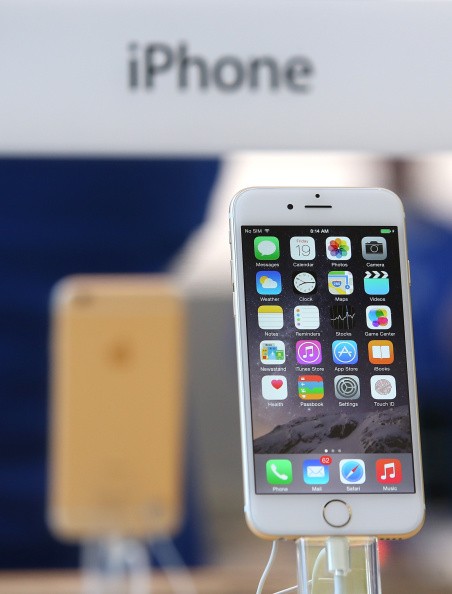A Beijing court has overturned a ruling that Apple's iPhone 6 violated a local Chinese manufacturer's patent and caused the U.S. tech giant to cease selling their smartphones in the city.
The Beijing Intellectual Property Office in May ruled that Apple violated the design patents of Shenzhen Baili with its iPhone 6 and iPhone 6 Plus, barring the company from selling those models in the Chinese capital. The ban, however, was not enforced as Apple filed for appeal against the administrative order
On Friday, the Intellectual Property Court in Beijing ruled in favor of Apple, stating that the California-based firm "has not infringed the design patent filed by the company Shenzhen Baili," according to a report from the South China Morning Post.
Apple was accused by the intellectual property office of copying the exterior design of Shenzhen Baili's 100C smartphone, which had a curved edge and rounded corners similar to the iPhone 6 range.
According to the Beijing court, the iPhone 6 had features that "completely change the effect of the entire product" and it was "easily distinguishable" from the 100C, making Baili's claim without legal basis.
When it became involved in the Apple patent case in Dec. 2014, Shenzhen Baili was a rising electronics manufacturer backed by Chinese search engine giant Baidu eager to tap into the lucrative telecoms market.
Since then, Baili has since collapsed amidst public criticism of its products as being of poor quality, the South China Morning Post reported.
Despite its legal victory, Apple still faces intense pressure in China. While it remains its second-largest market after the U.S., the company saw its turnover in the Greater China region drop by 12 percent in the last quarter of 2016. Its market share in mainland China has also plummeted, falling behind local rivals such as Huawei, Oppo, Vivo, and Xiaomi.
Apple also faces another legal dispute with Chinese leather goods supplier Xintong Tiandi Technology, that saw the iPhone maker lose its exclusive rights to the iPhone trademark in China.



























